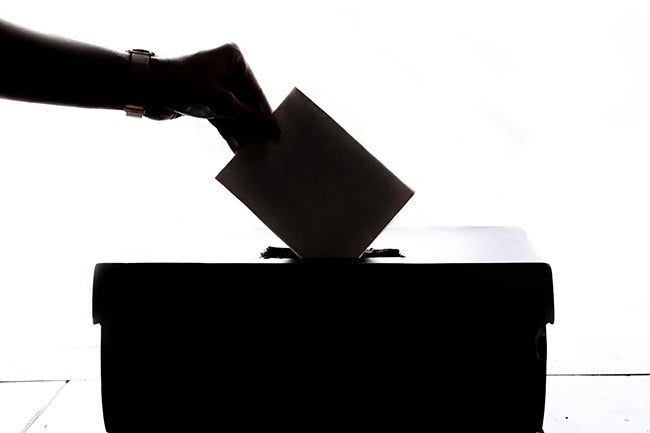Canadians who consider religion to be important in their lives were still more likely to vote for the Conservative Party in 2015, finds new research from the University of Waterloo. This religion effect on voting behaviour is one of the strongest sociodemographic effects on vote choice in Canada.
“We found that an individual’s strong religious beliefs and active involvement in a religious group affected their voting behaviour,” said Sarah Wilkins-Laflamme, assistant professor of sociology at Waterloo. “These more religious individuals have, on average, more traditional moral views, and are in turn more likely to support (conservative) candidates and parties who are perceived to share their values.”

The study found that in 2015 an estimated 49 per cent of voters considered religion to be important or very important in their lives. In turn, 43 per cent of voters who considered religion to be very important in their lives voted Conservative, compared with an estimated 28% in the general adult population. Religious beliefs and participation had a stronger influence on the vote than gender, level of education, employment status, and country of birth.
While people who are strongly religious may continue to vote Conservative, they now make up a smaller share of the population than in 2004. Overall, the researchers observe that Canadians’ views are becoming more liberal, with a rise in the proportion of people supporting same-sex marriage and women in the workforce among the general population and among religious individuals.
The 2015 election also saw an increase in youth voter turnout, and young adults are less likely to consider religion as important in their lives. Both of these factors could influence future elections.
“The liberal trajectory of society indicates that socially conservative platform positions may not meet with much success in years to come,” Wilkins-Laflamme said. “People who remain conservative on these issues still support them, but this base appears to be shrinking in size, especially when the youth vote turns out in greater numbers like it did in 2015.”
The study, Religion and Grassroots Social Conservatism in Canada, appeared in the Canadian Journal of Political Science.
Originally appeared as a Waterloo news release.